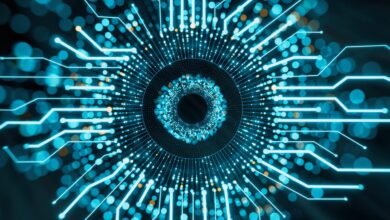GitHub CEO: Developers Must Adopt AI or Risk Falling Behind

▼ Summary
– GitHub CEO Thomas Dohmke warned developers to embrace AI or leave the profession, calling it a present necessity, not a distant future.
– The blog post highlights interviews with 22 developers who now see AI as indispensable, shifting from skeptics to AI strategists.
– AI companies, including GitHub’s parent Microsoft, are using scare tactics, warning professionals they’ll become obsolete without AI adoption.
– Developers’ roles are evolving from writing code to architecting and auditing AI-generated code, with new skills like system design and AI fluency becoming critical.
– Dohmke predicts AI could automate up to 90% of coding within 2-5 years, urging developers to adapt or risk obsolescence, though he acknowledges resistance to change.
The future of software development is being reshaped by artificial intelligence, and GitHub’s CEO has issued a stark warning: adapt or risk irrelevance. Thomas Dohmke’s recent blog post, “Developers, Reinvented,” delivers a blunt message to coders worldwide, those who resist AI integration may soon find themselves outpaced by the industry’s rapid evolution.
Drawing insights from interviews with 22 developers already leveraging AI tools, Dohmke emphasizes that this shift isn’t speculative, it’s happening now. One developer’s quote sums it up: “Either you embrace AI, or you exit the profession.” The sentiment echoes broader industry trends, with Microsoft executives like Julia Liuson similarly framing AI adoption as non-negotiable for staying competitive.
Initially, many developers dismissed AI coding assistants like GitHub Copilot as novelties. But as these tools prove their worth, skepticism has given way to strategic adoption. Engineers are transitioning from writing lines of code to overseeing AI-generated outputs, refining their roles into what Dohmke describes as “creative directors of code.” The focus has shifted toward system architecture, prompt engineering, and quality control, skills that will define the next generation of developers.
Rather than rendering human coders obsolete, AI is redefining their value. Early adopters gain a competitive edge, using automation to tackle projects once deemed too complex or time-consuming. Large-scale refactoring and multi-agent feature development, previously impractical, are now within reach. But this progress comes with a caveat: those who lag behind risk being sidelined as AI handles up to 90% of routine coding tasks within the next few years.
Dohmke acknowledges that not everyone will welcome this change. Some may balk at the idea of managing AI agents rather than crafting code manually. Yet he argues that developers have always worked at varying levels of abstraction, whether through programming languages or now, AI systems. While he concedes that resistance is natural, his underlying message remains clear: the profession is evolving, and hesitation could mean obsolescence.
For those unwilling to adapt, the question lingers, what’s next? Plumbing, perhaps? The joke underscores a serious reality. In an AI-driven landscape, standing still isn’t an option.
(Source: Business Insider)





